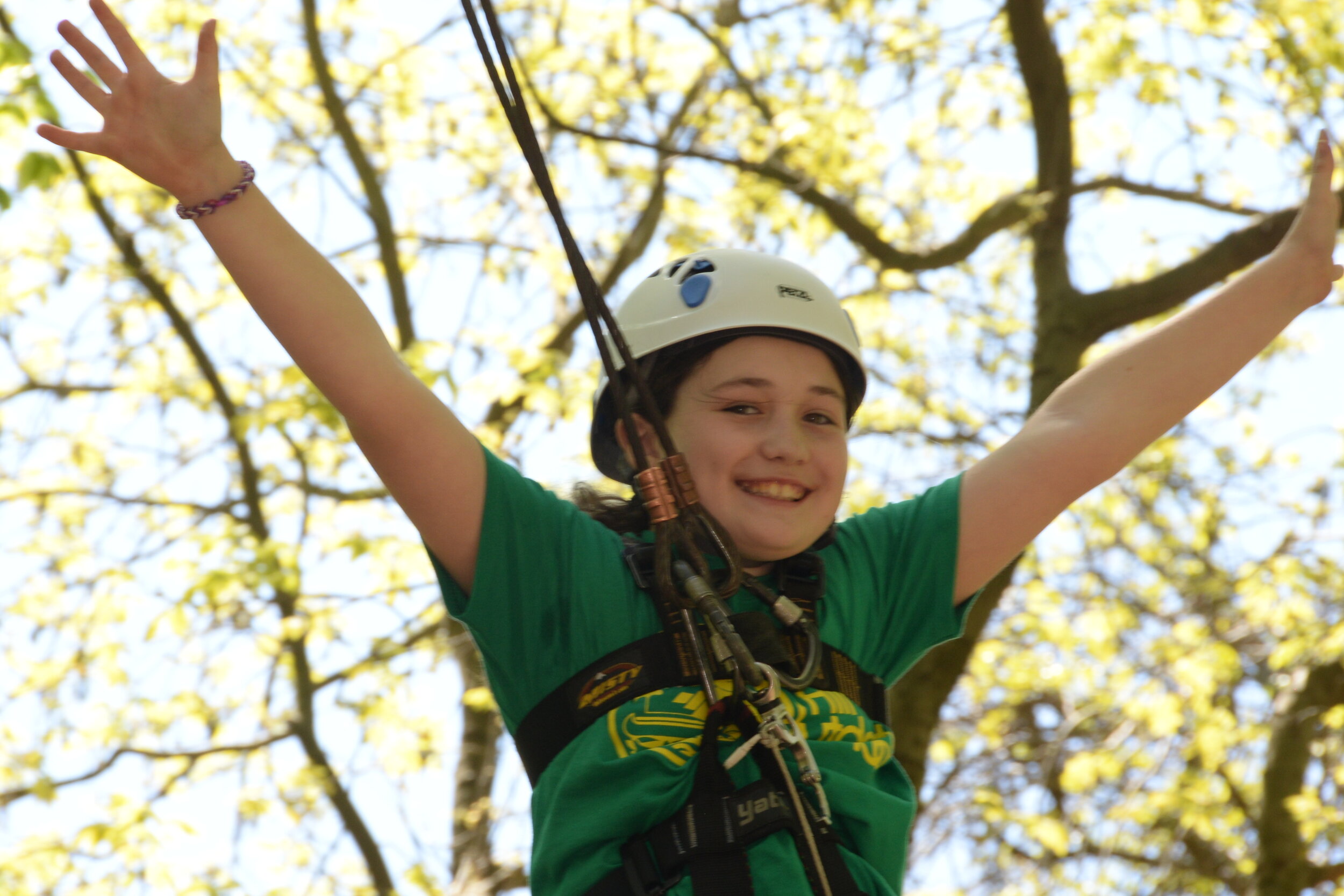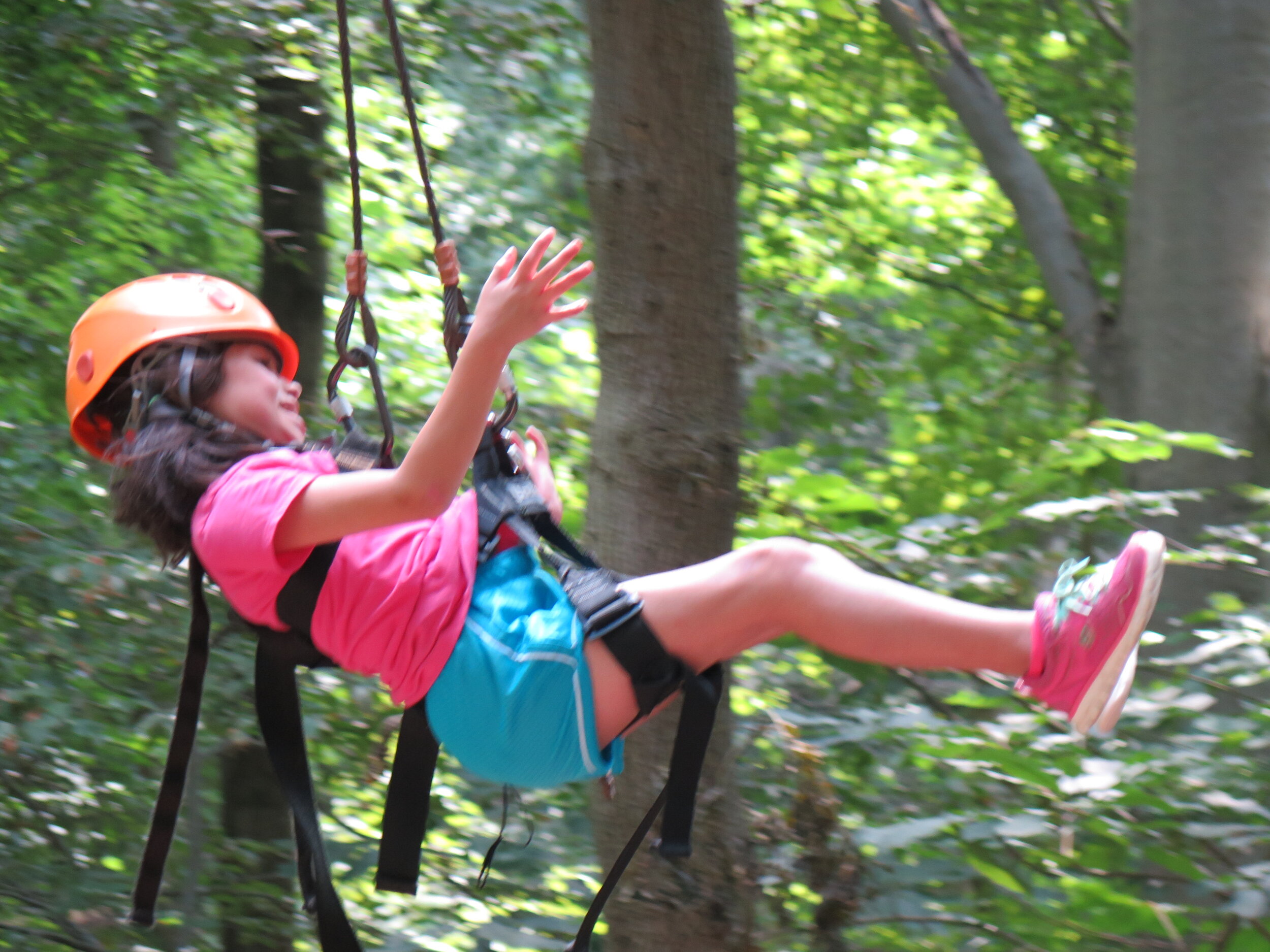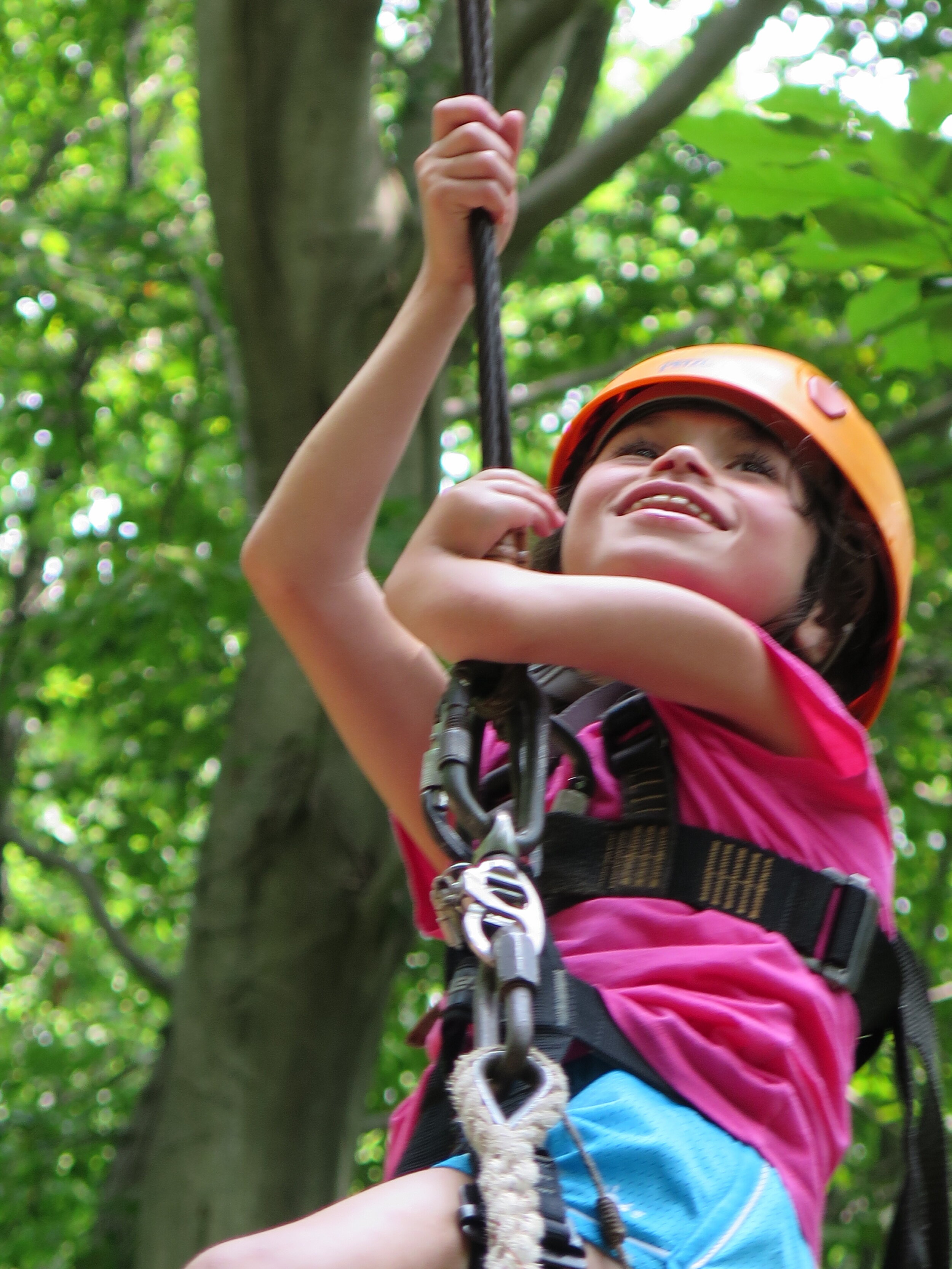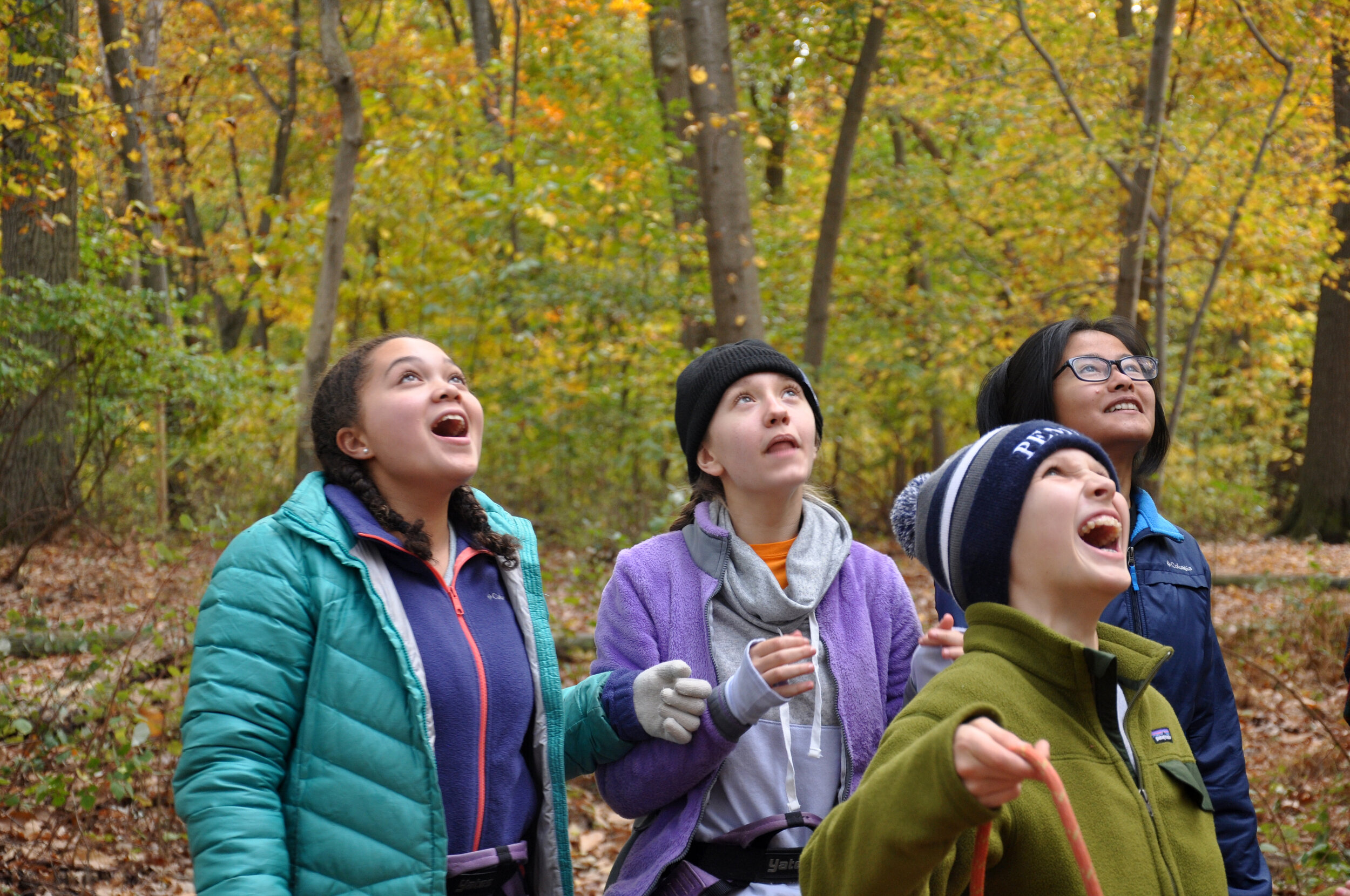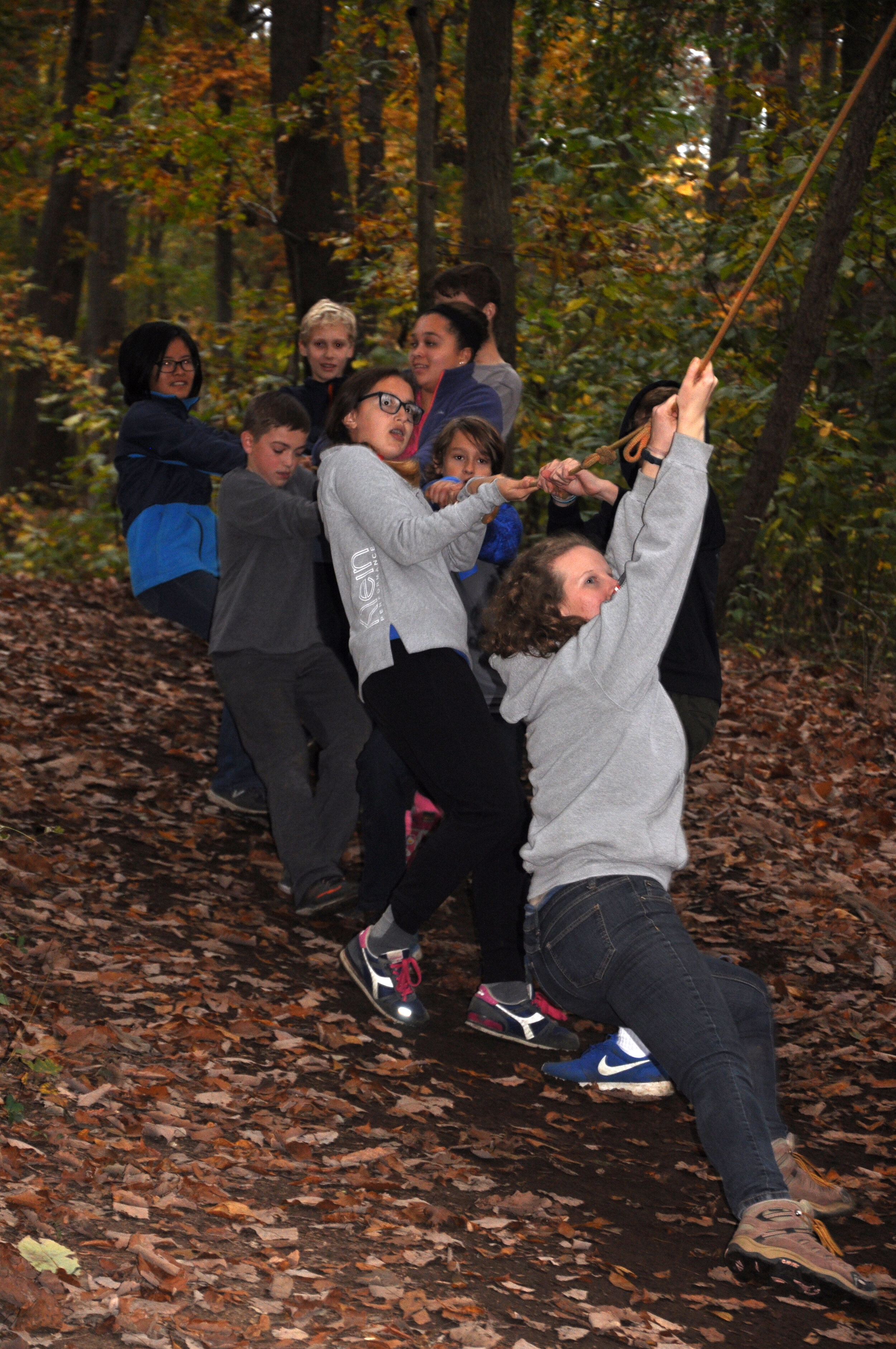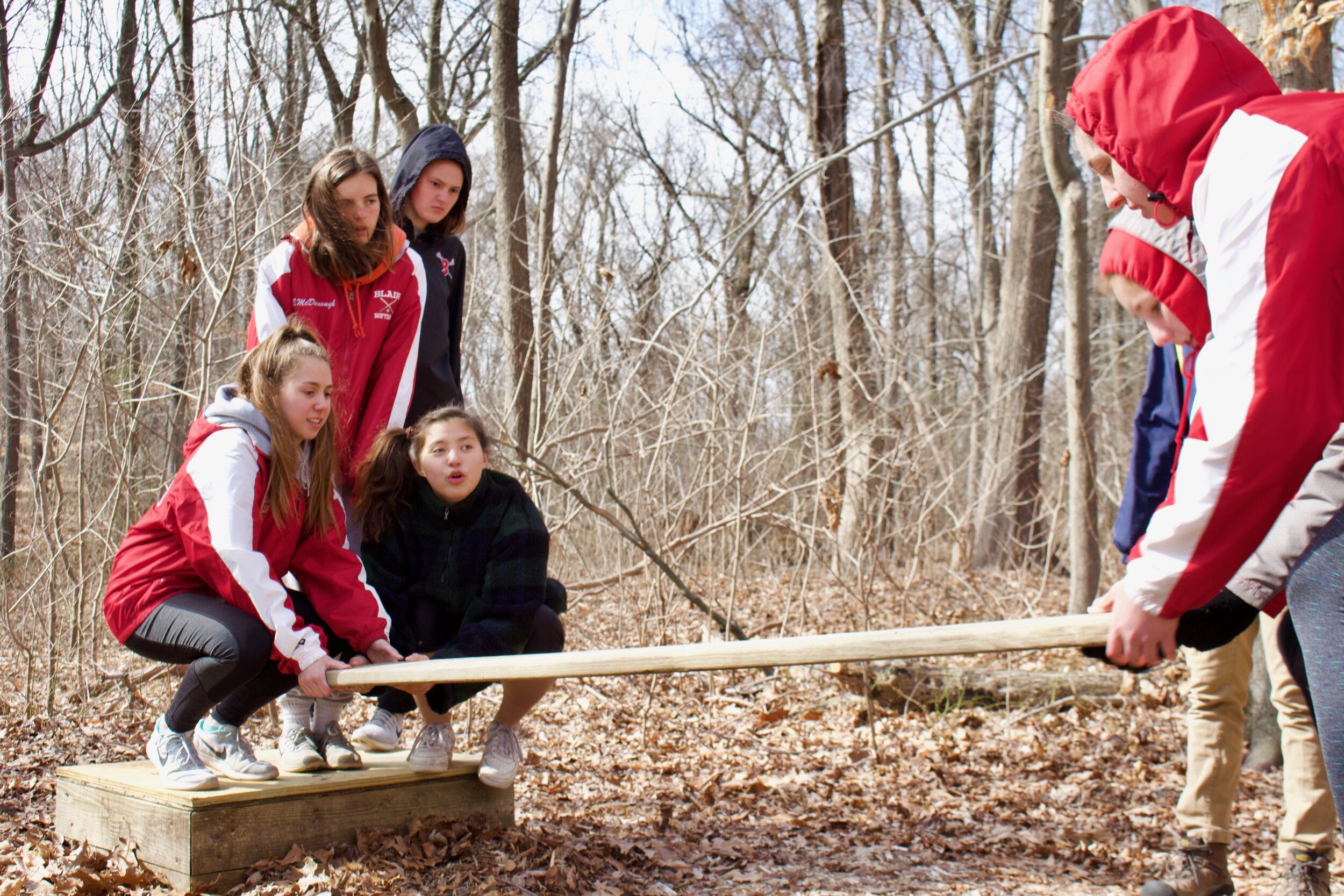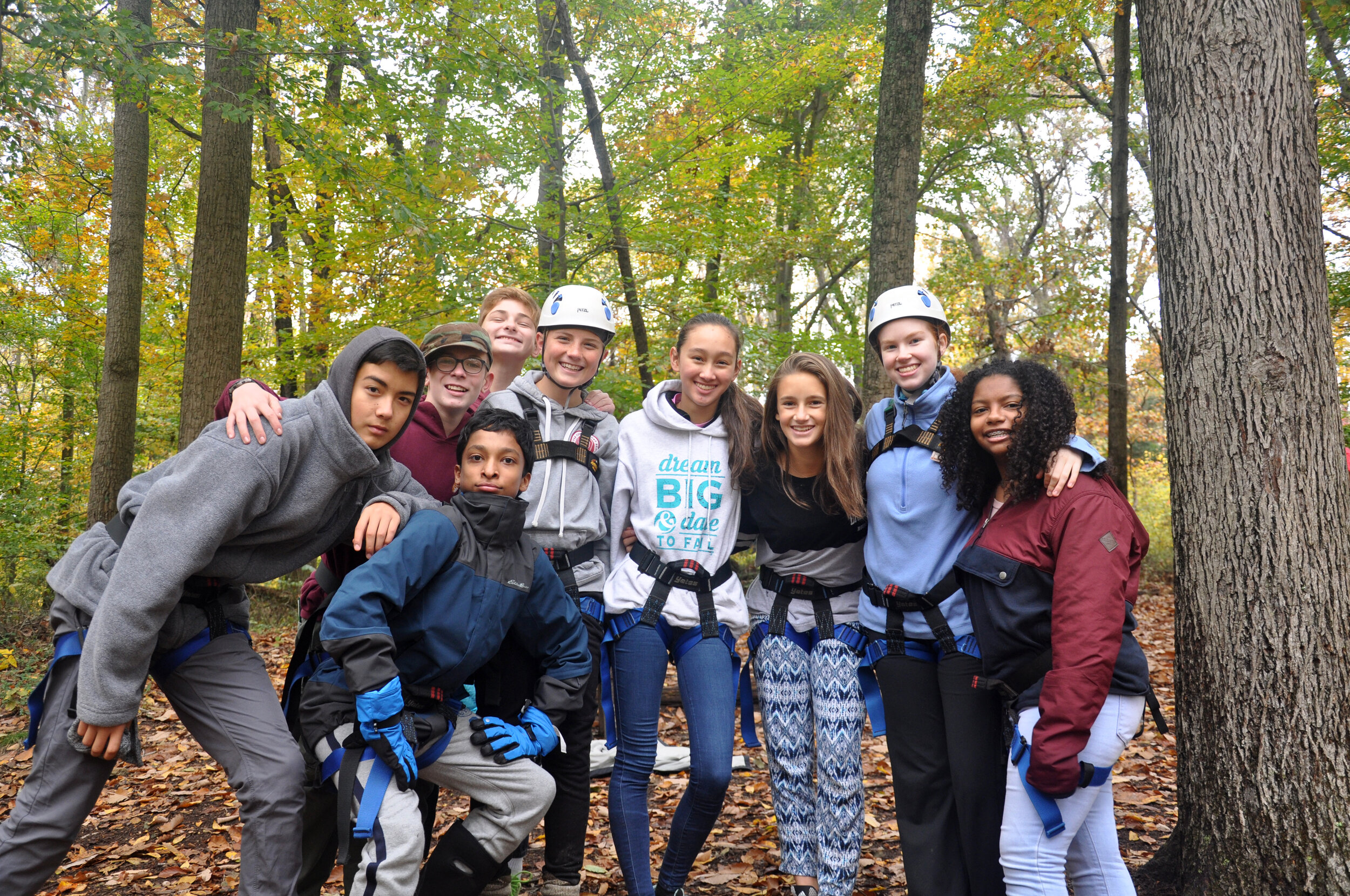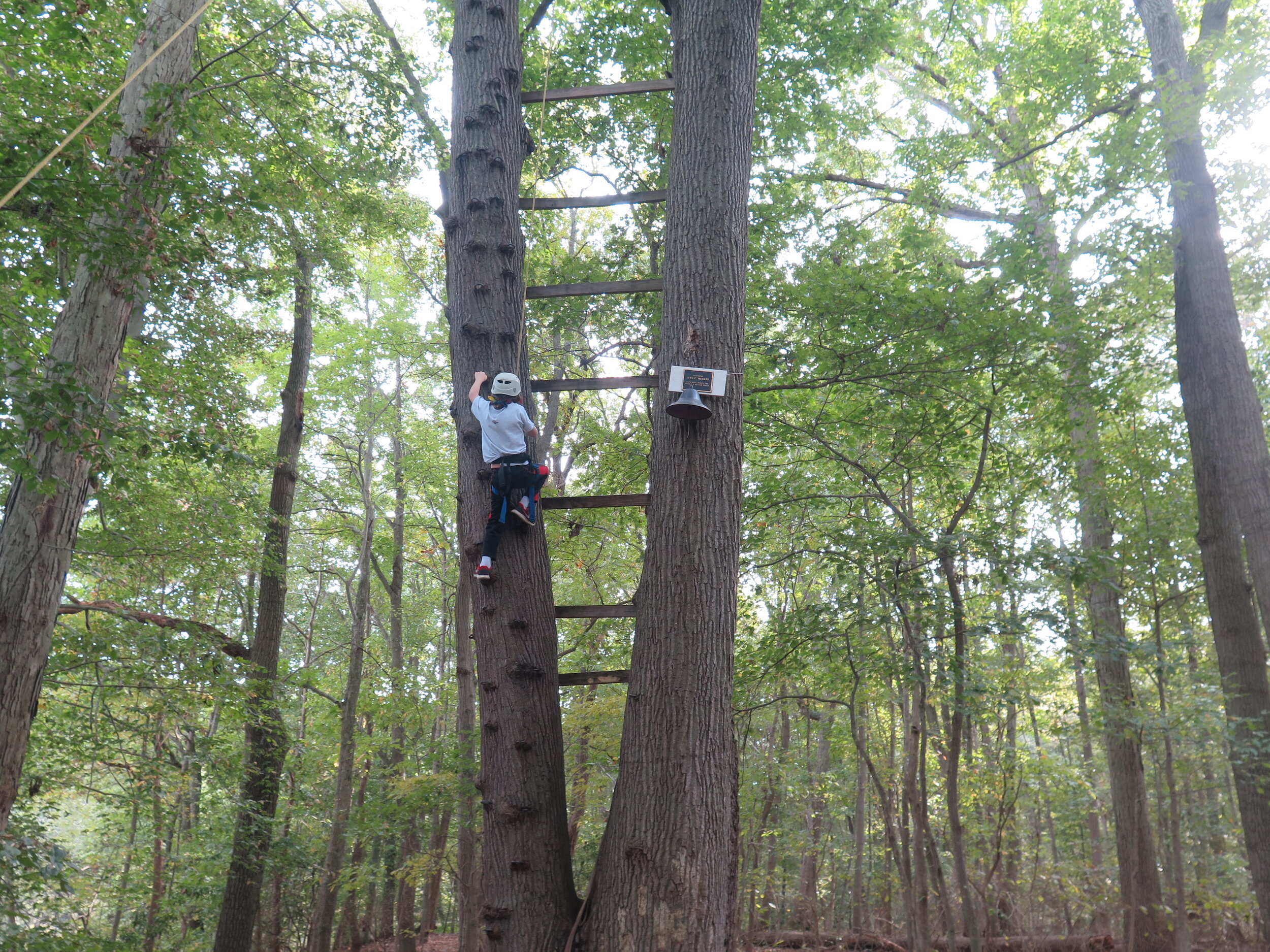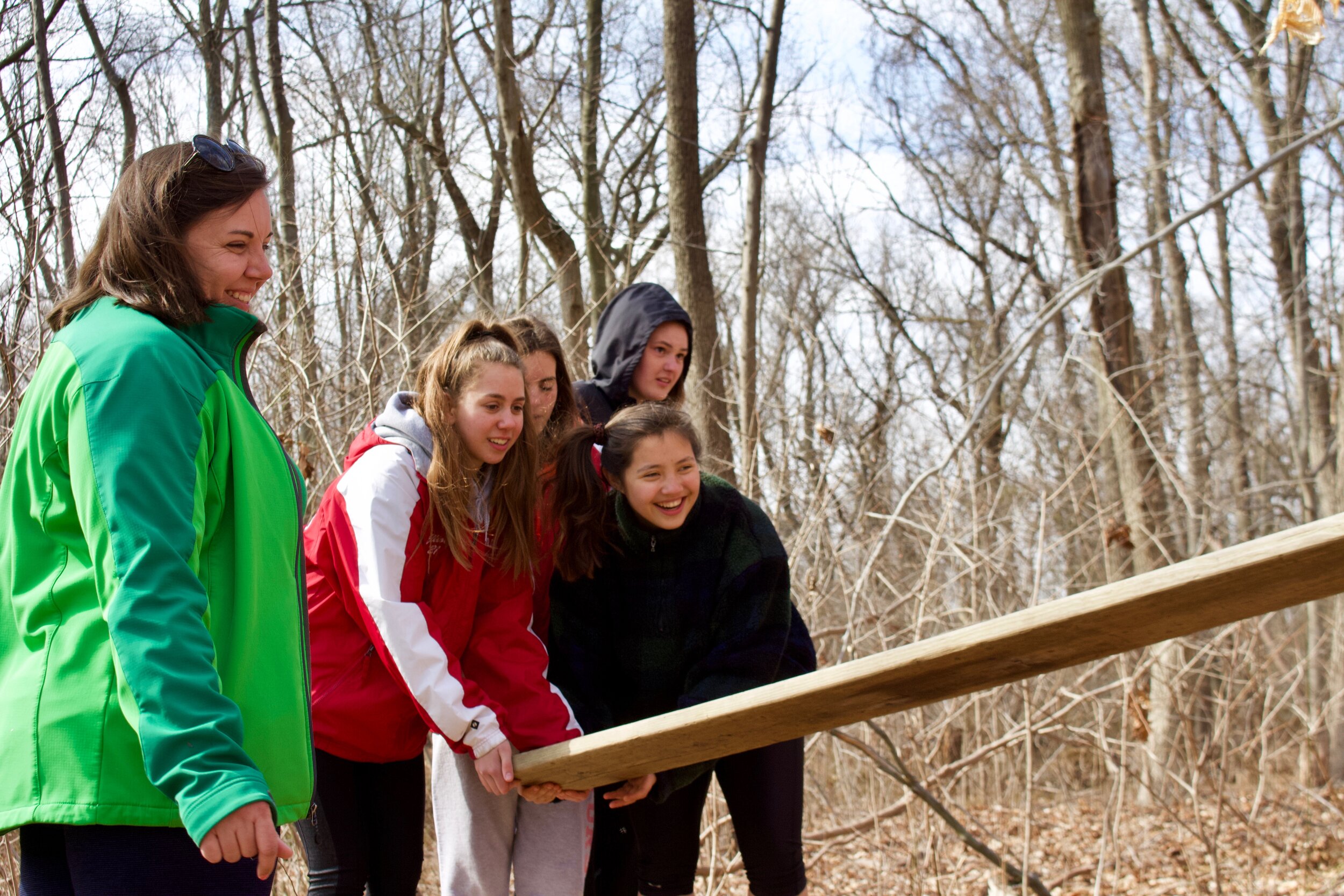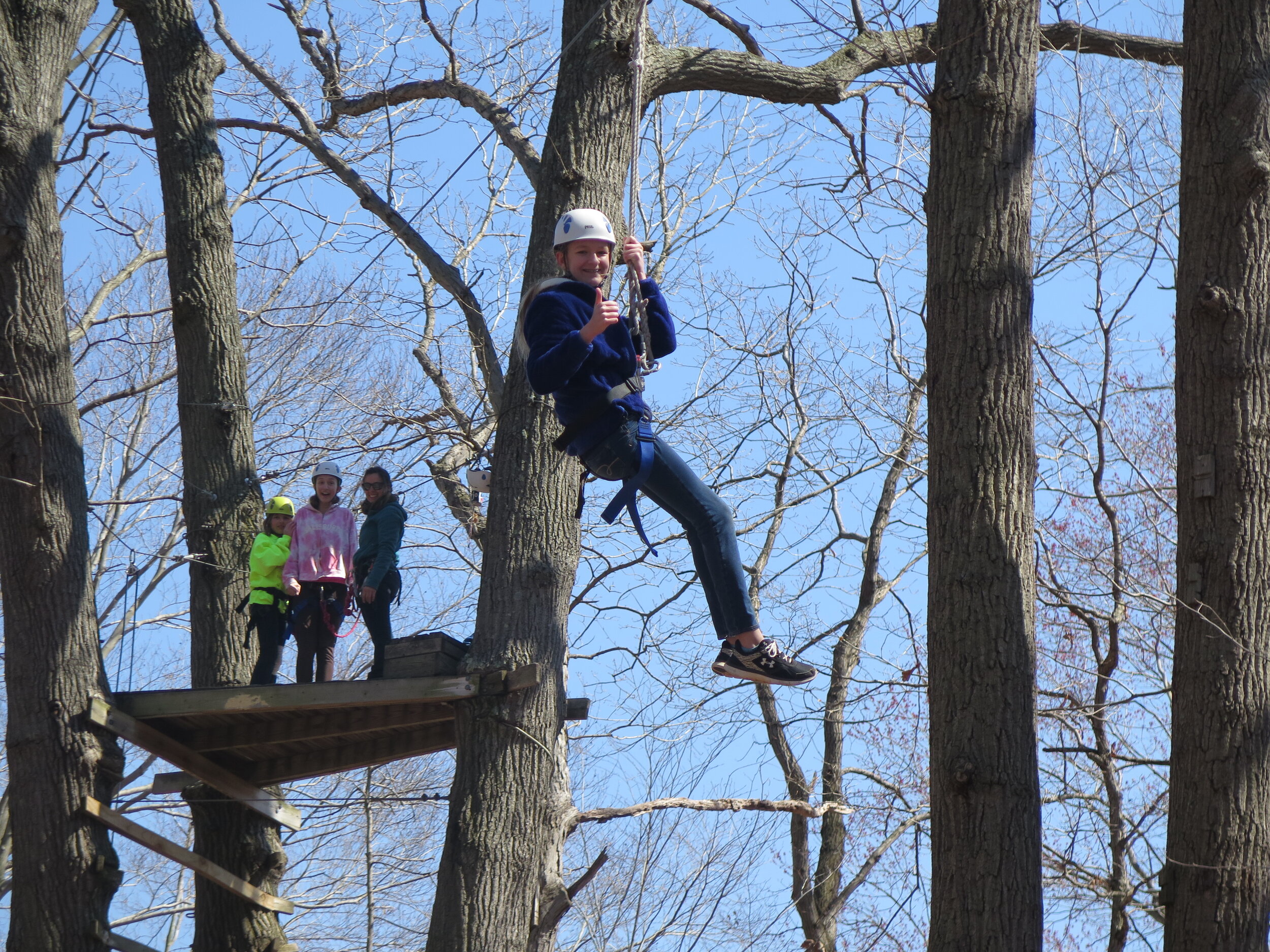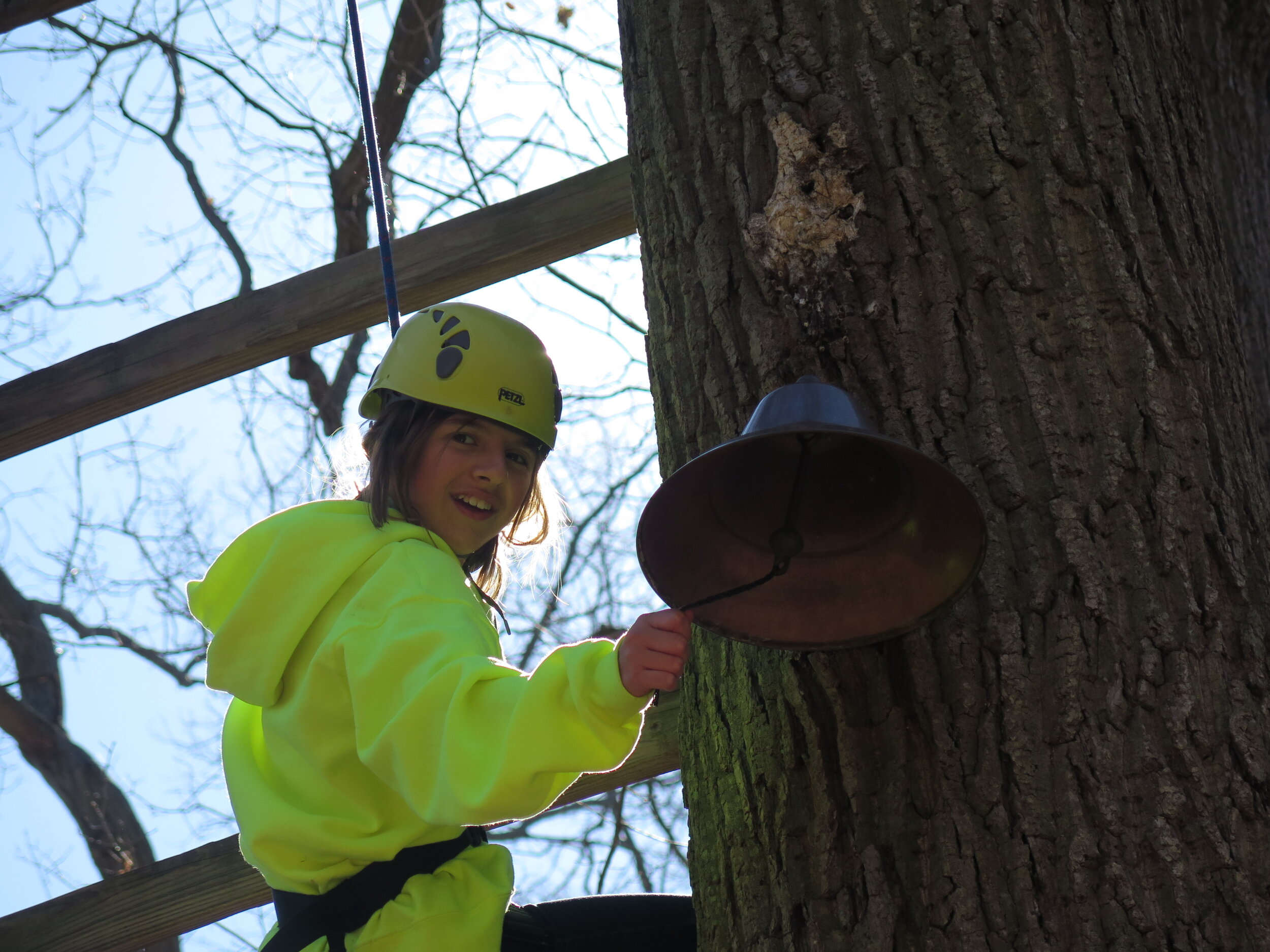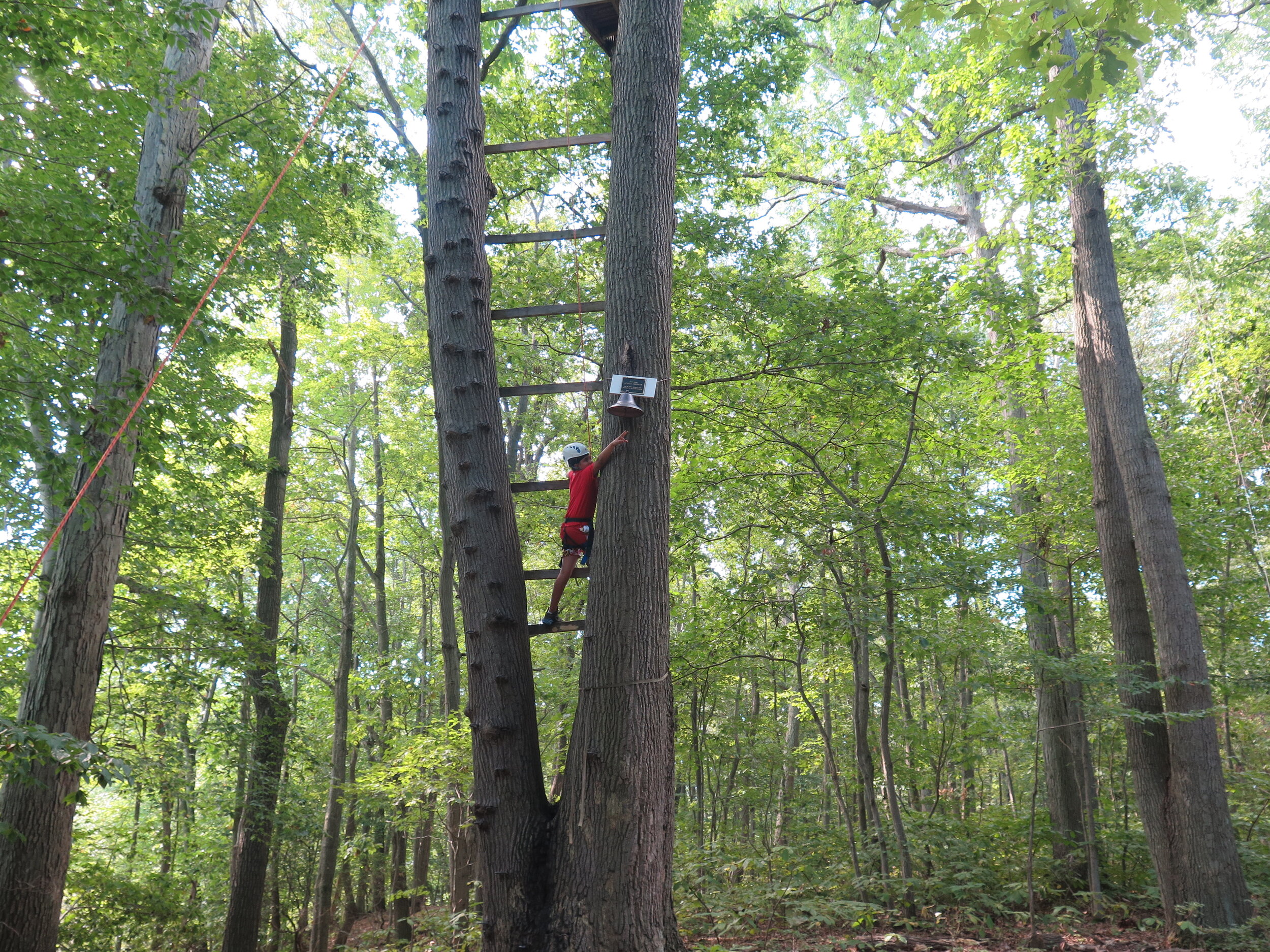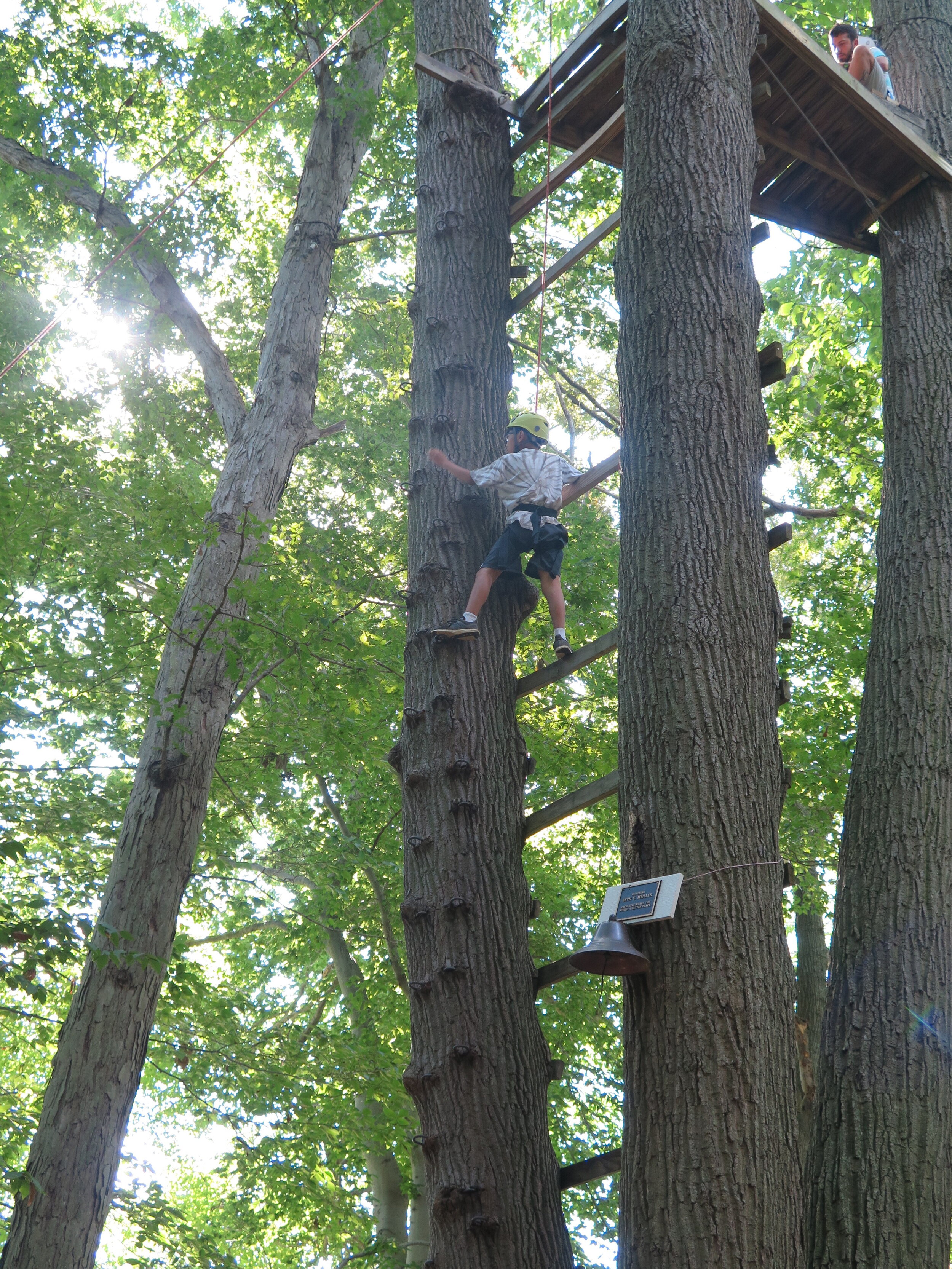adventure course and group development
Living and learning in the outdoors creates tremendous opportunities for personal and social growth. On all classes and in all aspects of residential life, Echo Hill teachers encourage students to pursue independence while recognizing the importance of the group. Teachers stress the importance of the following skills: working together on class; expressing opinions with confidence; listening to and respecting classmates' ideas; thinking creatively; having a positive attitude; and taking personal responsibility in the dining hall and tent areas.
At the foundation of the adventure experience is the maxim "Challenge by Choice." This provides a safe environment in which participants may express themselves, make choices, and pursue goals with support from their peers. Echo Hill instructors take responsibility to treat students with respect, care, and compassion, to ensure a safe experience, and to encourage positive interactions among participants.
Activities
On our Adventure Course, low elements and problem solving initiatives such as Lily Pads, The Wall, and All Aboard improve communication, establish trust, explore team roles, and create self-awareness. High elements such as the Zip Line, Giant Swing, Pathfinder, and Alpine Tower focus on personal responsibility, accountability, self-confidence, and team support.
Adventure Course and Group Development Classes
Adventure classes are a major component of our Individual and Group Development experiences. These classes take place on our Adventure Challenge course, which includes a variety of low and high elements. The adventure programming progresses from an initial focus on group dynamics to individual challenges. Students take lessons learned from Echo Hill adventure classes and apply them anywhere: displaying patience and cooperation while at Echo Hill; reaching academic goals back at school; and setting positive examples for family at home.
NEW GAMES
A cooperative approach to play is the basis of this class. Students engage in fun play with the purpose of enjoying each other’s company, getting to know one another in new ways and having a positive experience in the outdoors.
ADVENTURE I
In this introduction to group problem solving, students face challenges and participate in activities that develop trust, cooperation, leadership, communication, planning, decision-making, and group accomplishment. Individual self-confidence and creativity are also fostered. The class helps children feel good about themselves, each other, and the outdoors.
ADVENTURE II
A logical sequel to the Adventure I curriculum, Adventure II activities involve greater risk taking and more physically demanding challenges. Students have the opportunity to set goals and design individual challenges while offering support for the entire group. Students may climb the Giant’s Ladder, soar down the Zip Line and be greeted by their classmates who take part in the landing. Students can help hoist classmates with a team belay system on the Giant Swing until the swinger releases, experiences a brief fall and pendulum swing ride. Students may explore the Pathfinder, a climbing wall and cargo net topping out at a trapeze, while classmates coach and aid in the belay system.
ADVENTURE III
This experience is naturally more challenging than Adventure II, since the primary belay and safety of the student is the responsibility of other students. Students develop an increased feeling of trust and appreciation for individual strengths, as well as learning fundamental climbing skills such as belaying and knot tying. The Pathfinder, mentioned above, can shift to an Adventure III class by allowing the students to provide each other’s primary belay and by the more detailed instruction of climbing skills and techniques. The Alpine Tower, a triangular “jungle-gym” with hanging elements leading up to a platform over 50’ from the ground, allows climbers of different abilities to challenge themselves and explore their fears. As many as 18 participants can be involved at one time thus uniting the individual and group experiences. The Alpine Tower is limited to older students.
SURVIVAL
Students discover how factors affecting their survival compare and contrast with that of other animals. Predator/prey relationships, adaptation, evolution, extinction, and other facets of animal behavior may be explored. Fire building, shelter construction and survival games help children differentiate between needs and desires. Students learn how different our lives are from those of past generations and third world populations, and how dependent we have become on modern technology.
OPINIONS
Dr. Seuss’ story, The Lorax, is presented as a play and followed by a group discussion. In a simulated town meeting or press conference, students take on adult roles and hold a debate concerning the controversy that can arise between people who provide goods and services and people who care about the environment.
ORIENTEERING
Compasses, maps, star charts, sundials and measurements are used to understand different methods of navigation. The class participates in hikes, compass courses and treasure hunts to practice their directional skills.
SWAMP WALK
Students learn about swamp ecology by experiencing it. Wading neck deep in areas of dense growth, preconceptions are challenged as they smell and feel the mud and see wetland plants and animals at eye level. Swamp Walks conclude with a rinse off in the bay and showers, followed by a discussion about impressions and insights. This class is weather and temperature dependent.




